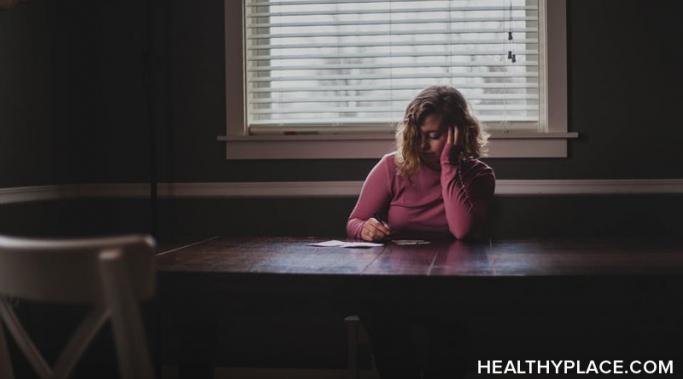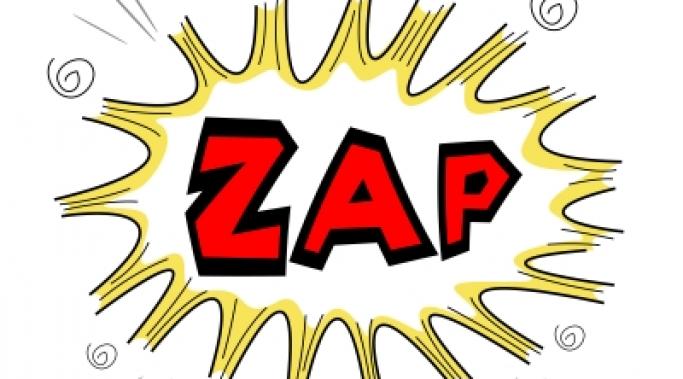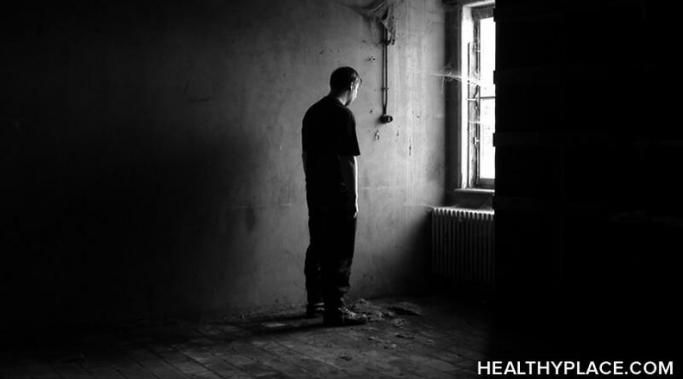The self-stigma of having depression never really goes away. It is always there, scratching at the back of your mind, a constant reminder that you are weak, incapable, unworthy, fake, undeserving, lazy, ashamed, broken . . . the list goes on. The self-stigma of having depression can present itself whether you're feeling up or down.
Depression Videos
We've just turned our clocks back marking the end of daylight savings time. While the nights will be darker sooner, the mornings will be brighter. For a short while. The truth is, with the end of DST comes the season for Seasonal Affective Disorder (winter depression).
Winter can be so depressing, can't it? I live in the great Canadian north. Well, not too far north. In fact, I live near Toronto, which is just one hour north of Buffalo. Still, in the winter, the nights get pretty darn long and the often times below zero days, are gray and snowy and downright depressing.
It’s surprising how quickly depression's ups and downs can get you. It’s almost as if, you’re going along feeling pretty good and then WHAM, depression slams into you and says, “Now, now… you have chronic depression, remember? You’re not allowed to feel too good.” That’s the depression roller coaster.
Quitting your depression medication without the doctor's help can lead to trouble. In fact, getting off your antidepressant medication on your own is a very bad idea.
I know, because I did it.
When you have chronic depression, a depressive episode can rear its ugly head unexpectedly. You’re just going through your days, living your life, managing your depression as best you can and then . . . you feel the decline. This happened to me this week, surprising me because I had just survived a brief dip in my mood in early May. I wasn’t expecting this depressive episode so soon after the last.
Depression Won’t Define Me
Back some thirty-five years ago when I was a child, the word depression wasn’t readily used as a diagnosis, rather, it was used to describe a point-in-time state of being. "I’m depressed because I have no friends." While this use of the word is obviously still valid, depression, in all its varied forms, has come to mean so much more. Back in those days, we’d call it a bout-of-the-blues or feeling down-and-out to which our mothers would emphatically state, "snap out of it… stop feeling sorry for yourself!" My Mom didn’t realize (though, who could blame her) that this prolonged, repetitive, inescapable, inexplicable "mood" that plagued me was actually an illness.
Hi, my name is Amie Merz and I'm glad to be teaming up with Jack Smith on this blog and sharing my thoughts, knowledge and experience on coping with depression. I am a counselor in private practice (my credentials: MA, LPC, NCC, CASAC, ICAADC, SAP) in a rural area south of St. Louis, MO. in the United States. I have worked in the mental health field since 1991, with all age groups, income levels, issues and dynamics. I have learned that mental illness does not discriminate; so many people have been affected by it. My hope is that the negative stigma of getting help can continue to fade away so we can help more people feel better.
Hi, my name is Jack, and I suffer from depression.
I was first diagnosed with Major Depressive Disorder about seven years ago, but I’ve been waging war on this brain disease for a long time. And it is a disease. It is not a character flaw. It is not an excuse for my shortcomings. It is not a spiritual defect. It is not a case of the occasional blues. It is real, and it is painful — physically painful. It is maddening and it can be gut wrenching. It is an illness just as diabetes is an illness.
I call it a war because war is hell, and so is clinical depression.








